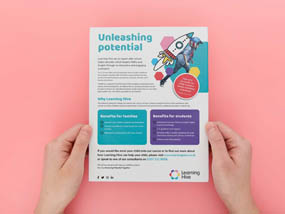Voice Search, AI Creatives & Web3 Ads: Whats Next for Digital Marketing
Many operate on legacy systems that are not designed to work with modern AI technologies. This can create compatibility issues and hinder the seamless implementation of AI solutions. Companies should focus on upgrading their infrastructure and training their workforce to work alongside AI systems, fostering a culture of continuous learning and adaptation. Many travel marketers already know how quickly clicks vanish when budgets run dry.
But as with any high-impact innovation, many companies are anxiously anticipating what comes next. Based on research and our experience with integrating AI, it is becoming clearer where and how AI will deliver the biggest impact on marketing in the coming year. Additionally, AI can automate the bidding process for pay-per-click (PPC) campaigns, adjusting bids in real time to achieve the best possible results.
AI-powered data platforms help teams watch these shifts daily instead of quarterly. Small tweaks, such as adjusting headlines for conversational searches or adding local tips to compete with influencer videos, keep pages discoverable when people search on voice assistants or social feeds. This shift is also accelerating the transformation from Customer Experience Management to Customer Experience Orchestration.
Your purpose-driven marketing strategy must align with your overall mission and values, which may mean a top-down revamp of your existing brand and business plan. Brands that stand out know how to balance organic and paid strategies, test new channels, and optimize for search, social, and AI. Having the right tools in place lets you identify what works, discard what doesn’t, and maintain your brand visibility regardless of changing search habits.
Web3 Ads: Decentralized, Transparent & User Controlled
This AI marketing software gives marketers up-to-date insights into what people search for, which pages attract links, and what content travelers share most. Artificial intelligence has already transformed digital marketing, but we’re just beginning to realize its potential for personalization. Consumers increasingly want personalized experiences that cater to their preferences in real time, and AI can help us provide them. These insights can inform marketing strategies, helping businesses to make data-driven decisions. For example, AI can identify which marketing channels are driving the most traffic and conversions, enabling marketers to allocate their budgets more effectively. It can also predict future trends, allowing businesses to stay ahead of the curve.
Traditional vs. Digital Marketing
In light of these limitations, marketers must use AI strategically rather than liberally. Forward-thinking marketers can showcase their commitment to sustainability through transparent communication and tangible actions. Campaigns highlighting eco-friendly initiatives, such as carbon-neutral operations or partnerships with environmental organizations, will resonate deeply with audiences. The challenge lies in avoiding greenwashing and ensuring that genuine efforts back claims.
- While the shelf life of AI is much longer than some of the marketing tools of the past, its true effectiveness still depends on the individual marketer.
- Modern marketing platforms combine AI with massive, fresh data to help brands adapt to these changes.
- This helps keep audiences engaged and encourages them to spend more time on a website or platform.
- Marketers plan content that matches real questions instead of guessing keywords.
- However, it is important to note that an AI tool is only as effective and accurate as the data it has at its disposal.
Today’s consumers don’t just want products—they want meaningful, relevant experiences that feel authentic and human. As digital channels multiply and data grows exponentially, the pressure on brands to deliver these tailored interactions continues to rise. For marketing teams, this presents a critical challenge—creating fresh, compelling content across an increasing number of channels and customer segments. To remain relevant, brands must move beyond basic segmentation and deliver hyper-personalized experiences that resonate on a deeper level. Advanced machine learning algorithms can analyze vast consumer datasets, enabling us to predict consumers’ needs with unparalleled accuracy. For example, e-commerce platforms can use AI to present personalized product recommendations and entire curated shopping experiences.
The overlap of voice search, AI creativity and Web3 technology is not just revolutionising the way we market, but it’s re-defining the entire customer journey. Due to rapid technological advancements and ever-shifting consumer behaviors, marketers need to adapt with agility and foresight like never before. Staying ahead of the curve in this environment requires an understanding of emerging trends as well as what they mean for marketing strategy and execution. We think of omnichannel marketing as delivering a flawless shopping experience to customers. It requires in-depth knowledge of your target audience and how they interact with businesses.
Challenges And Concerns
Instagram, TikTok and YouTube offer shoppable posts, livestreamed sales and in-app purchases to create the ultimate “impulse buying” opportunity. To combat this during our initial AI projects, we had to budget carefully and clearly demonstrate the potential ROI to secure the necessary funding. We also implemented rigorous data management protocols to ensure data quality and compliance. Additionally, we invested in training programs to upskill our employees, ensuring they were well-equipped to leverage AI tools effectively. Businesses might also struggle with integration of AI with existing systems and processes.
The Future Of Digital Marketing: 7 Trends C-Suite Executives Should Watch
This ensures that ads reach the right people at the right time, maximizing the return on investment (ROI). The next evolution in marketing lies in agentic AI—intelligent systems that don’t just assist, but act. These AI agents can autonomously manage complex, multichannel workflows, helping brands streamline execution and deliver personalized experiences at scale. AI will play a growing role in collecting, automating and processing large amounts of data required for keen, comprehensive data analytics. The efficiency with which AI can process and analyze materials allows marketers to garner important insights swiftly and take action based on them, from new targeted content to faster data-driven decisions.



















































































































